Nurturing with nature
UGA horticulture class shows students the science behind herbal remedies
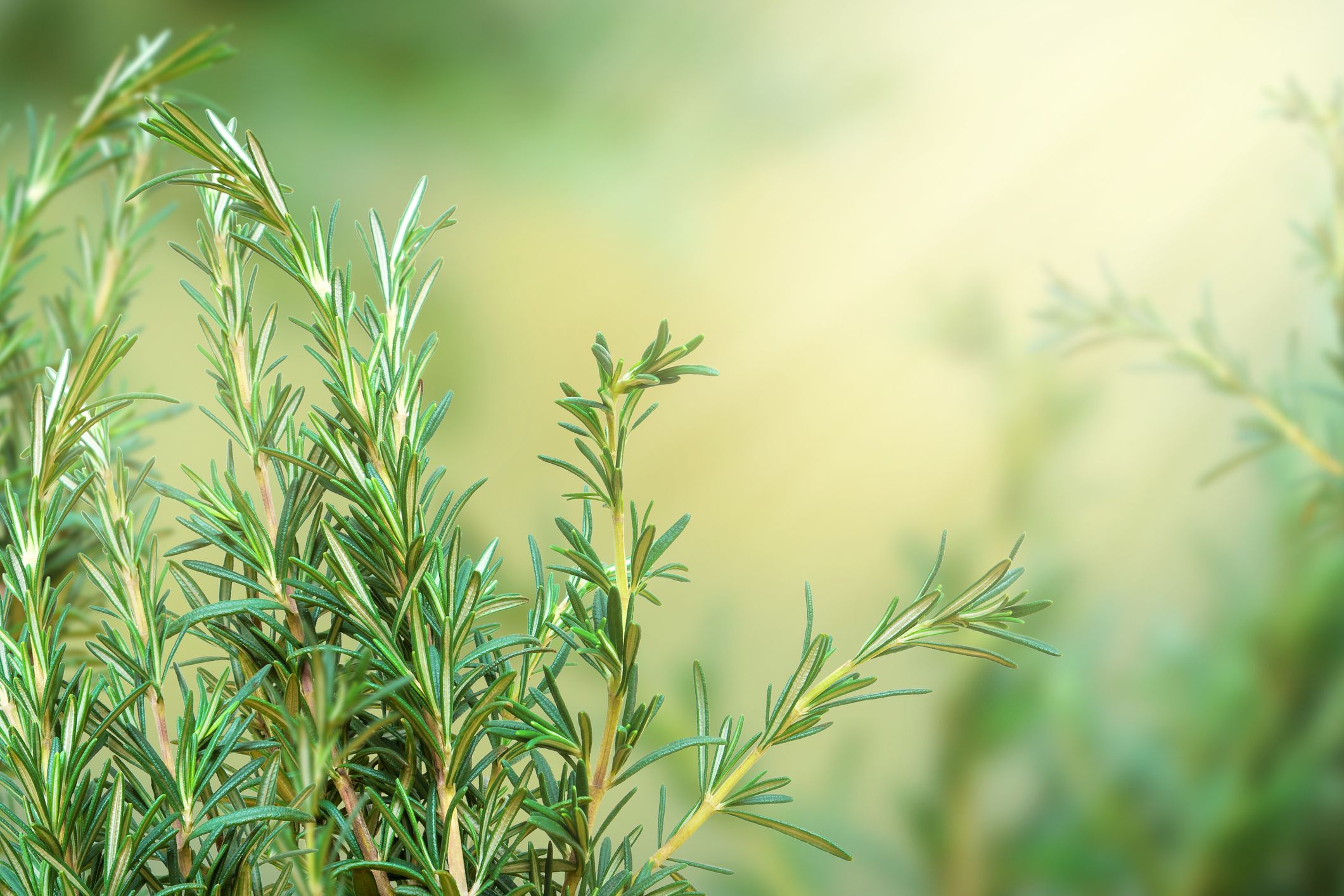
The field of medicine is ever-changing, and the use of herbal medicines may play a bigger role in health care as the value of natural remedies gain recognition in the Western world.
Students at the University of Georgia’s College of Agricultural and Environmental Sciences are delving into the field of medicinal remedies through the class “Herbs, Spices and Medicinal Plants.” Offered to undergraduate students through the Department of Horticulture, the class helps students develop a deeper understanding of the connection between nature and health, learning how they can complement modern healthcare.
Under the guidance of Noelle Joy, a doctoral candidate in horticulture, students explore how plants can be used in medicine. Specializing in herbalism and plant science, Joy is passionate about the relationship between the foods we consume and how they influence the body. Her fascination began during her undergraduate studies in nutrition science at CAES, when she first nurtured a garden at home and began volunteering at UGArden, the university's organic student-teaching farm.
She is now considered a legacy leader at UGArden, where she started the UGArden herb program from a simple bed of plants into a unique brand with a multitude of exceptional products, like teas, now for sale at local businesses and in UGA dining halls.
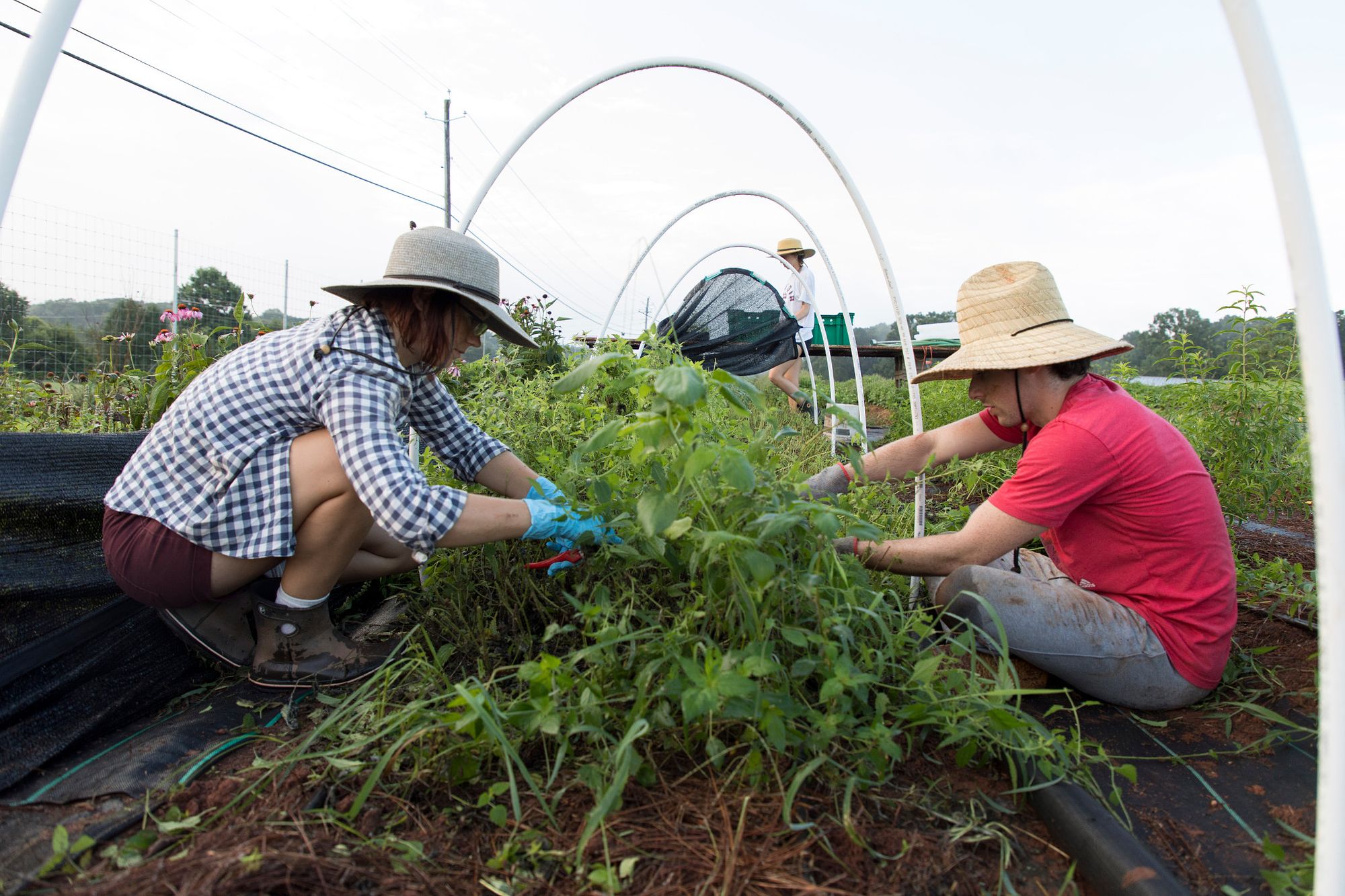
Former medicinal herb garden manager Noelle Joy (left) and undergraduate student Sam Shafritz pull weeds in UGArden's medicinal herb plots in 2018.
Former medicinal herb garden manager Noelle Joy (left) and undergraduate student Sam Shafritz pull weeds in UGArden's medicinal herb plots in 2018.
Joy now researches the effect of different drying methods on the chemistry and quality of medicinal herbs, primarily focusing on hemp.
She believes alternative medicines have the power to treat conditions in ways conventional medicines currently cannot. From traditional Chinese medicine to Ayurveda in India, cultures across the world have used plants for their healing properties. There is now an influx of Western research conducted on medicinal plants and their potential effects.
“I think there is more openness to herbal therapy,” Joy said. “I'm seeing situations where providers are willing to learn more about herbal therapies or patients who are trying to navigate health crises and trying to figure out what method is the best.”
Joy’s own experiences as a student foster an interactive learning environment for the diverse student population it attracts. The course draws on disciplines including history, anthropology, and clinical studies to create a holistic perspective on the subject, preparing students for diverse career paths.
“There’s blended interests,” said student Zoe Bean. “It’s great because some people are very science-minded and others are very holistic and energetic. We put it all together and make up common theories.”
Joy creates lessons that are accessible and replicable, helping students learn about alternative health.
Through lectures, demonstrations and guest speakers, the class highlights different herbs and plants. Students learn plant identification and herbal chemistry, applying those skills by making teas, tinctures, salves and hydrosols, which are produced by distilling fresh leaves, fruits, flowers and other plant materials.
Practical assignments help students incorporate the lessons into their everyday lives, including cooking with herbs, making remedies, and foraging for herbs in the wild.
Joy encourages her students to develop their own personal relationship with plants through planting a garden and foraging, as well as researching the benefits of various herbs and spices to develop their own formulas tailored to individual needs.
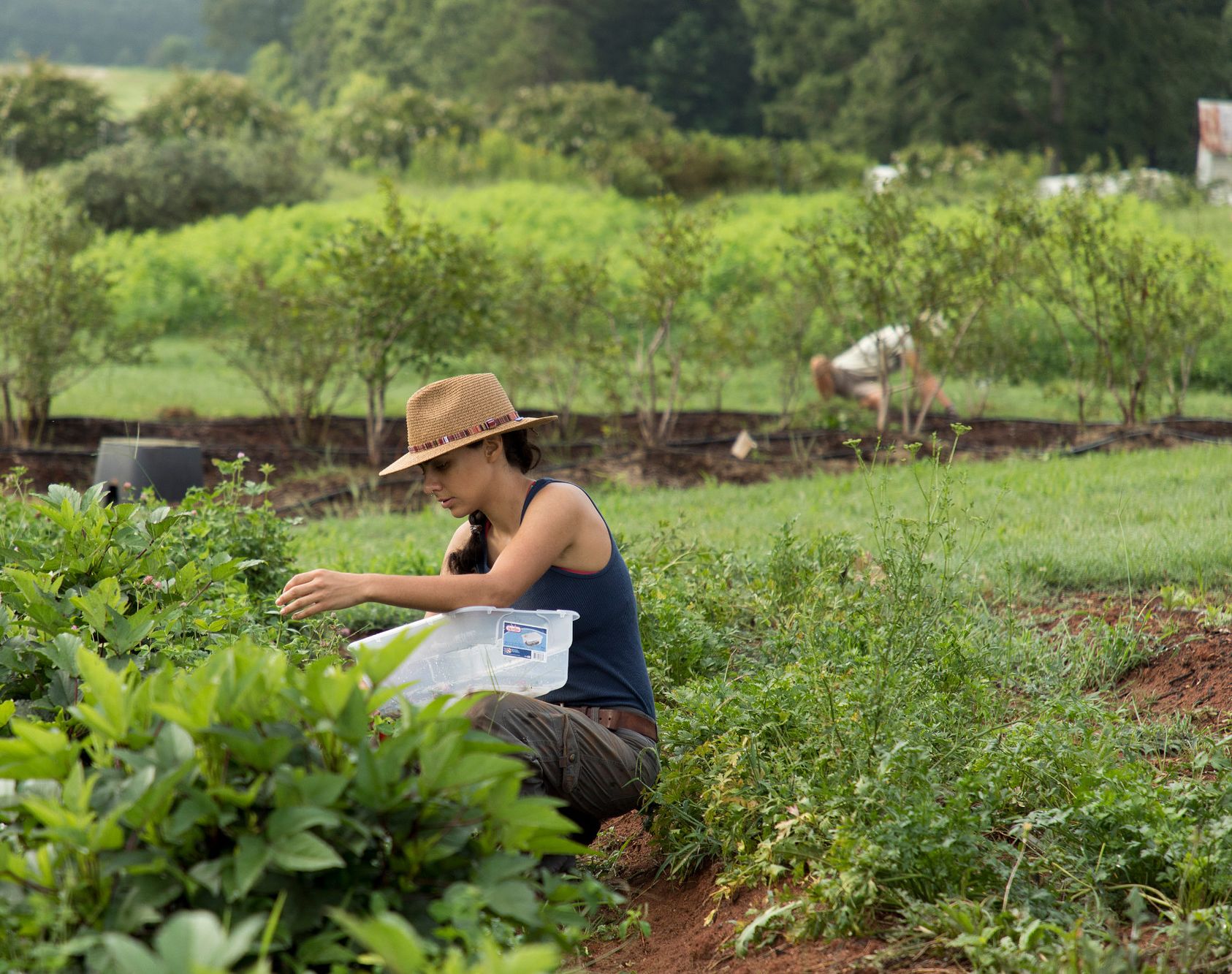
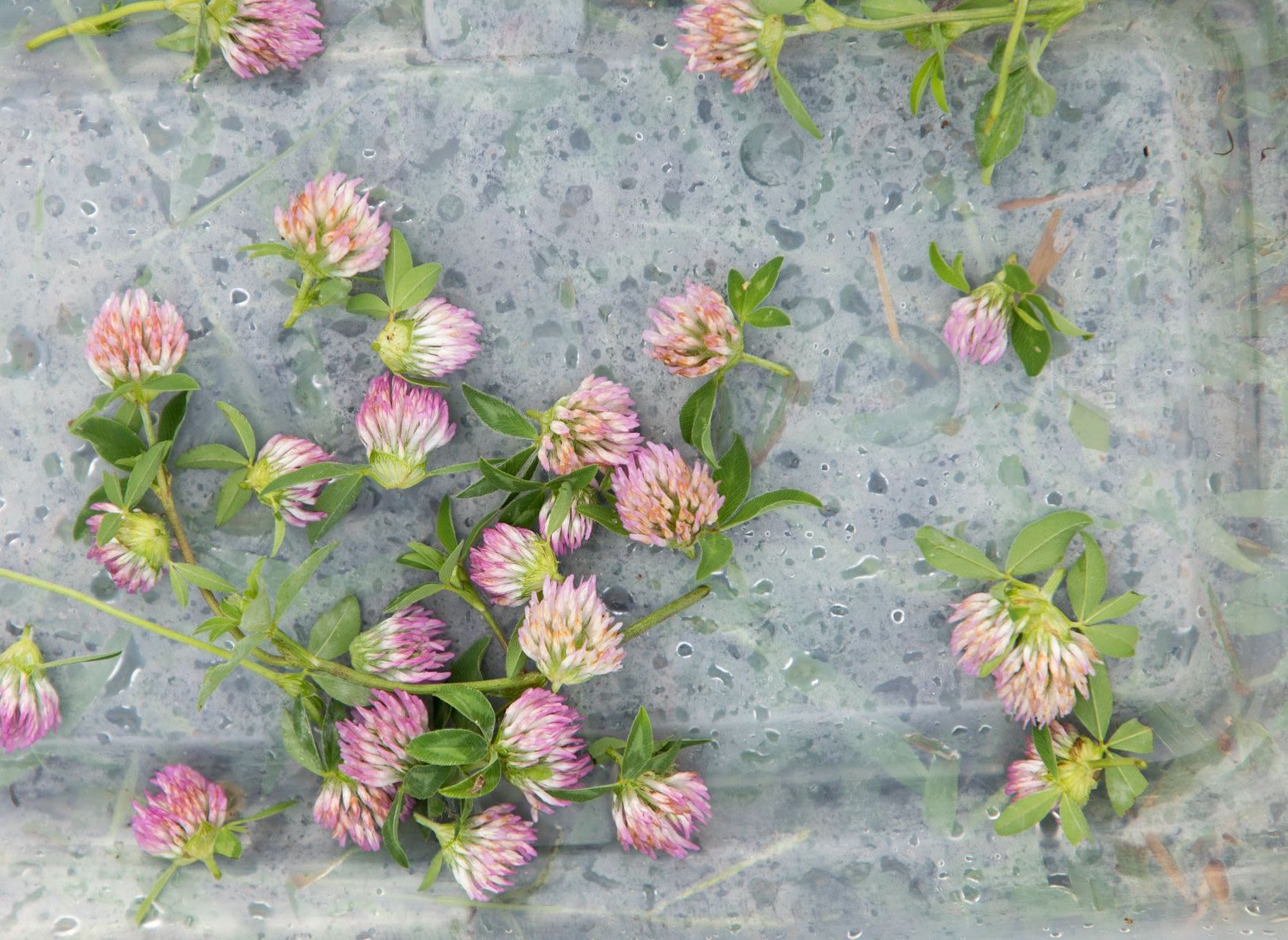
“I want to take the subject and encapsulate it into something that feels accessible. I'm hoping for students to gain a foundation of medicinal plants and experience the possibilities they hold for supporting humans.”
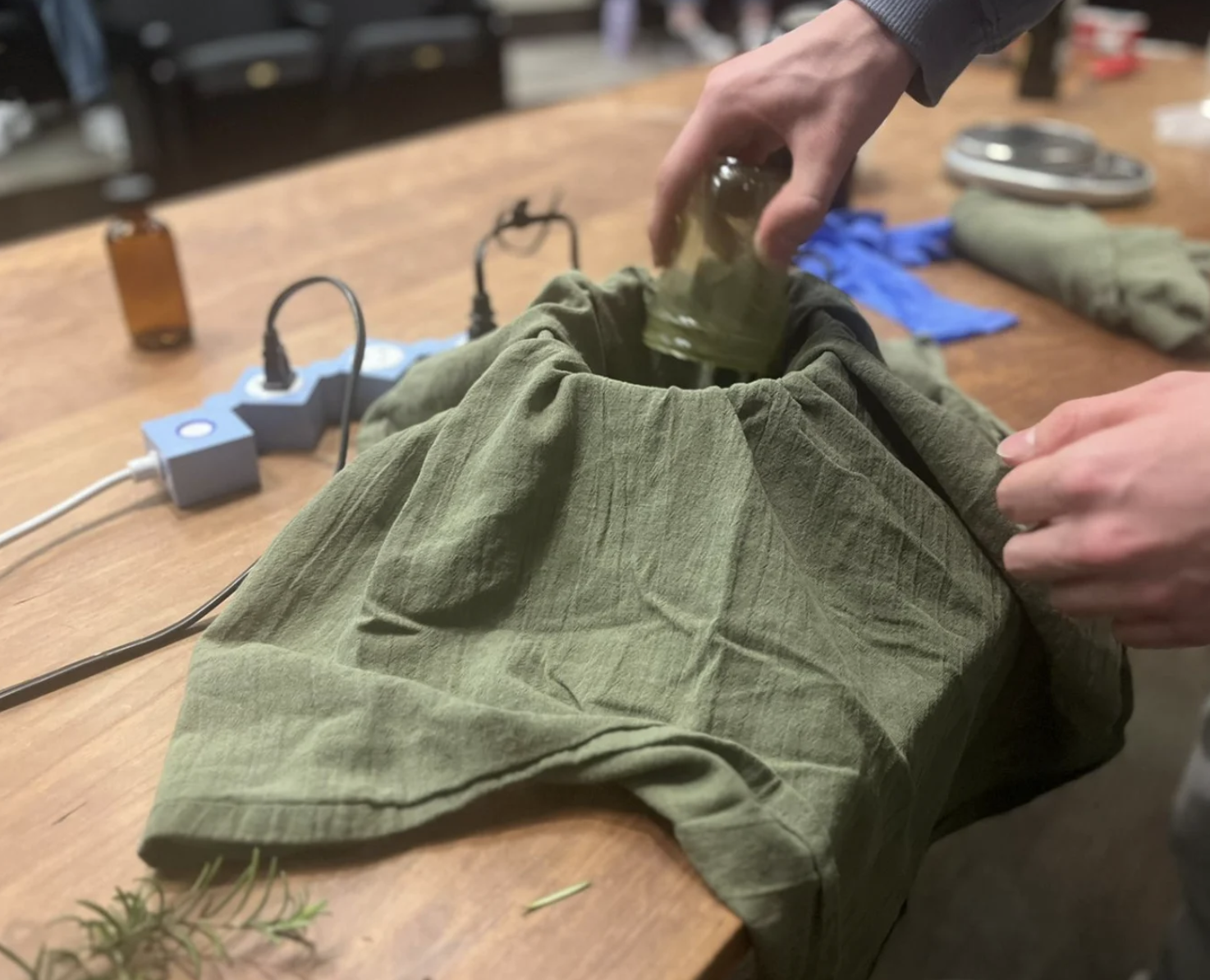
A student makes rosemary-infused olive oil during an “Herbs, Spices and Medicinal Plants” class.
A student makes rosemary-infused olive oil during an “Herbs, Spices and Medicinal Plants” class.
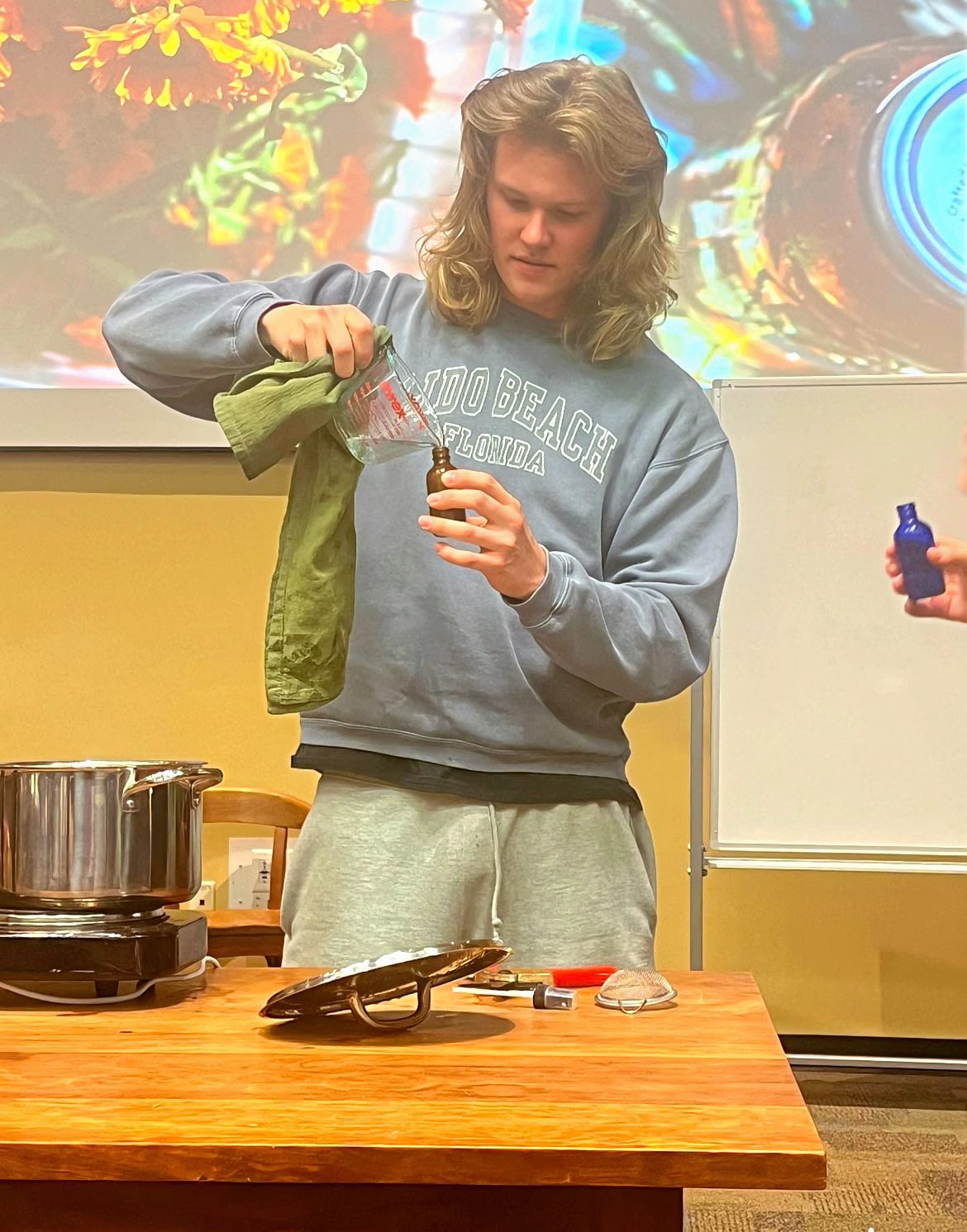
Student Spencer Wells pours rosemary infused olive oil into a bottle.
Student Spencer Wells pours rosemary infused olive oil into a bottle.
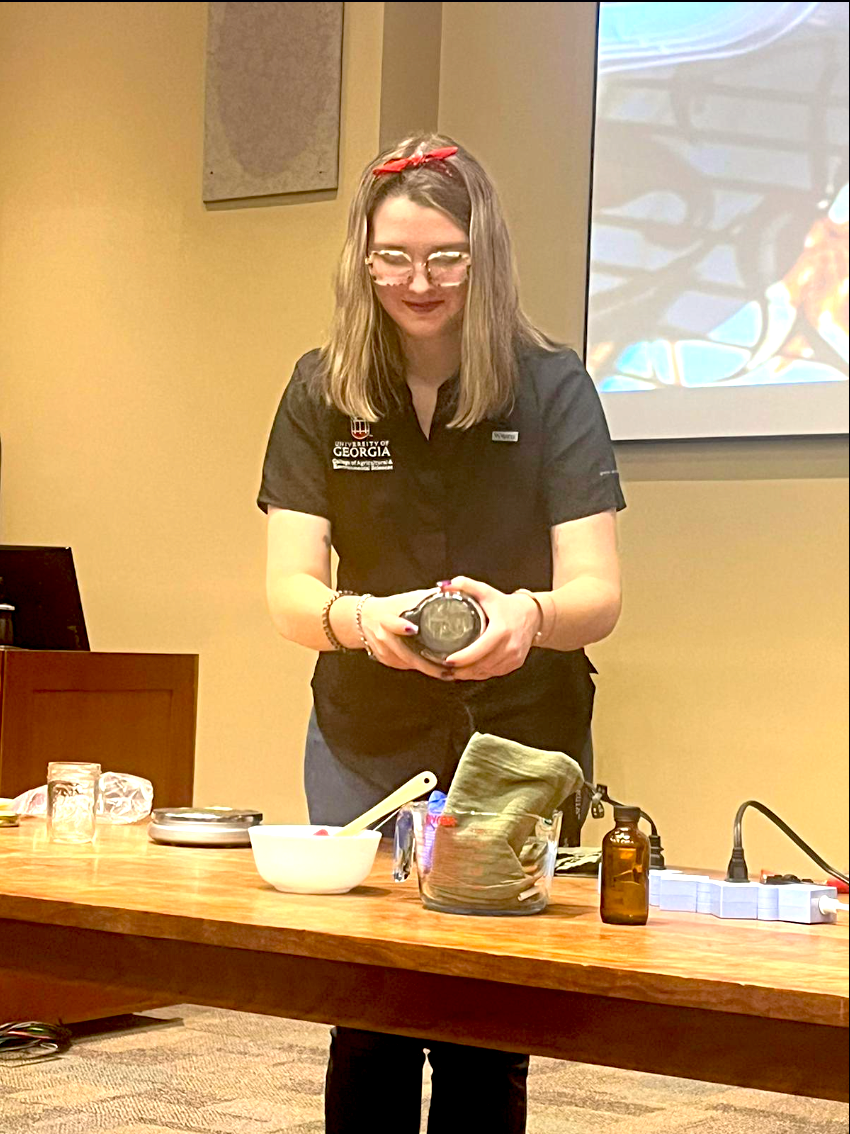
Student Madi Perdue prepare ground rosemary to make a rosemary hydrosol.
Student Madi Perdue prepare ground rosemary to make a rosemary hydrosol.
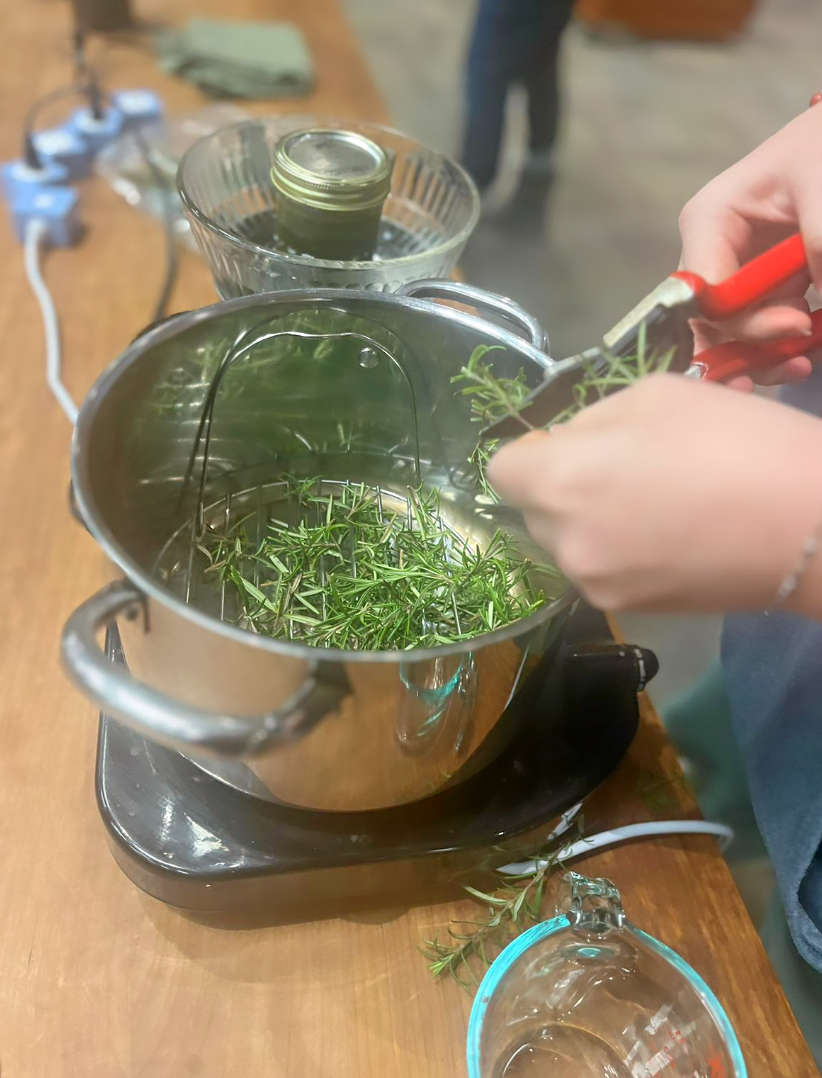
A student snips rosemary into an instant pot to create a homemade condenser used to make hydrosols.
A student snips rosemary into an instant pot to create a homemade condenser used to make hydrosols.
To learn more about other undergraduate courses and hands-on learning opportunities in UGA's horticulture department, visit hort.caes.uga.edu.
Check out ugarden.uga.edu for more information about the UGArden medicinal herb program, whose mission is to teach students about medicinal herb production and business practices that enrich communities and create social change.
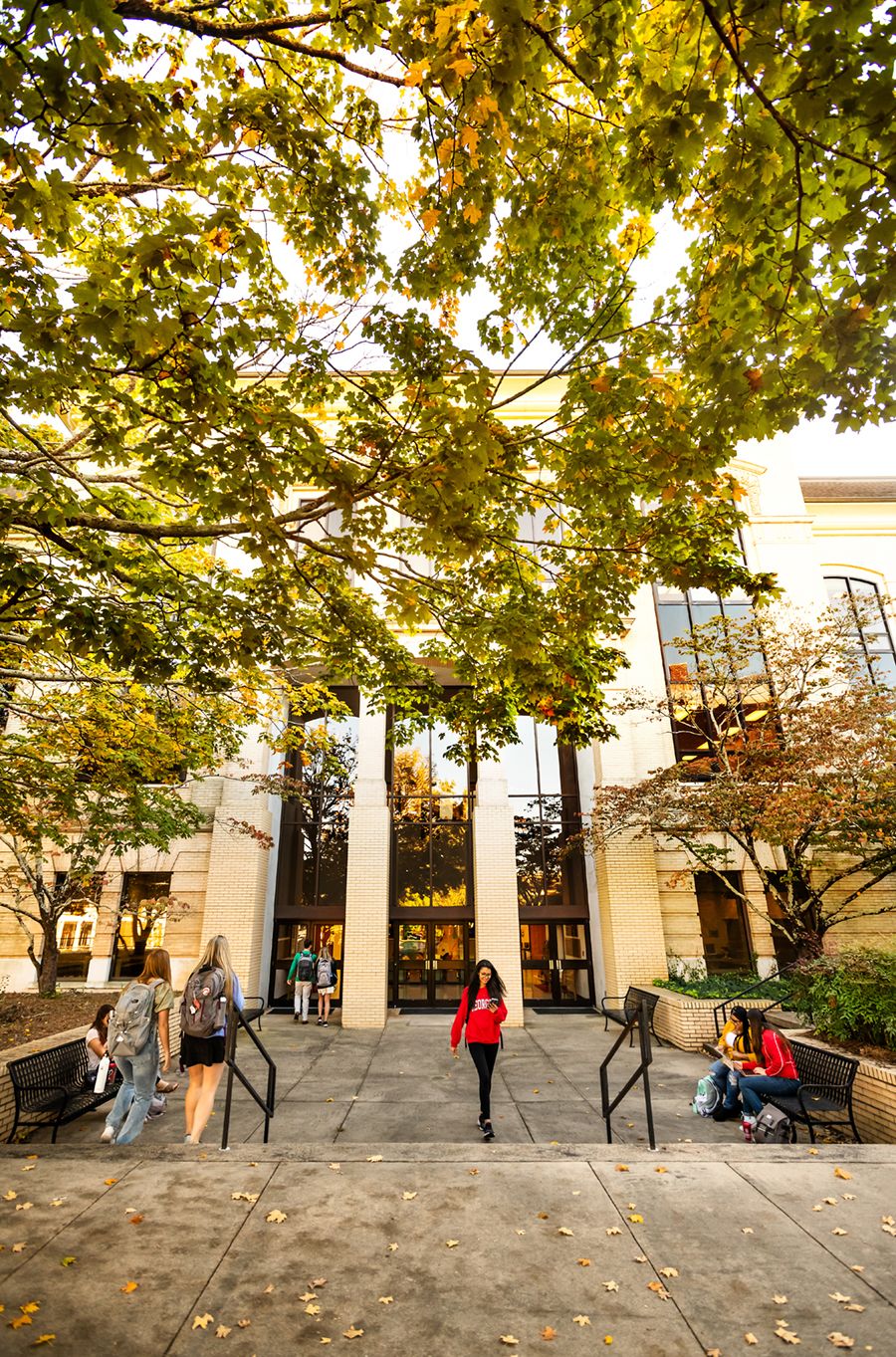
Interested in becoming a CAES student?
Schedule a campus visit and learn more about the admissions process today.
CAES students work alongside world-class scientists to get hands-on experience in their field. Through scholarship opportunities, small class sizes and faculty support, CAES students are empowered to become the next generation of leaders.


